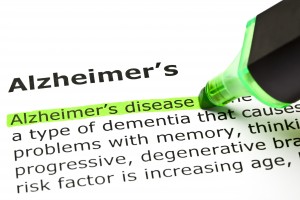-
Health & Wellness
Tuesday Q and A: Many conditions result in dementia, but Alzheimer’s is most common
 DEAR MAYO CLINIC: What is the difference between dementia and Alzheimer’s disease? Are they hereditary?
DEAR MAYO CLINIC: What is the difference between dementia and Alzheimer’s disease? Are they hereditary?
ANSWER: Dementia is a broad term used to describe a group of symptoms that interferes with a person's thinking and the ability to function well in day-to-day activities. Many conditions can result in dementia, but Alzheimer’s disease is, by far, the most common. Because so many factors can lead to dementia, one cannot say that dementia, the syndrome, is hereditary. Rather, subtypes of dementia (for example, Alzheimer’s disease) may have inherited components. A rare form of Alzheimer’s disease is truly inherited, but that accounts for only 1 percent of the total disease. Typical Alzheimer’s disease, however, does have a tendency to run in families, and there are genetic tendencies.
Dementia is defined by its symptoms, with memory loss being one of the most frequent. Just because a person has some memory loss, though, doesn’t necessarily mean he or she has dementia. A diagnosis of dementia typically means a person is having problems with at least two brain functions. That may include, for example, memory loss as well as impaired judgment or problems with language. These may in turn lead to difficulty performing routine tasks, such as paying bills or driving to a familiar location without getting lost.
Dementia also can lead to confusion. It can cause changes in personality and social behavior. Dementia may make it hard for a person to complete complex tasks that have multiple steps. Planning and organization can be a challenge, too, for someone who has dementia. In some cases, agitation, paranoia and hallucinations may be part of dementia.
The root cause of dementia is damage to nerve cells in the brain. A wide variety of diseases and medical conditions can trigger that damage. They include brain infections such as meningitis and encephalitis, stroke, multiple sclerosis, Lewy body dementia, multiple head injuries, thyroid problems and nutritional deficiencies, among others. Some of these conditions may be hereditary, but many are not.
In people 65 and older, the most common cause of dementia is Alzheimer’s disease. Although in most cases the exact cause of Alzheimer’s disease isn't known, plaques and tangles are often found in the brains of people with Alzheimer’s. Plaques are clumps of a protein called beta-amyloid, and tangles are fibrous tangles made up of tau protein. These plaques and tangles cause the brain damage that leads to symptoms of dementia.
In rare cases, Alzheimer’s can be traced to a specific genetic disorder. Members of families who have that disorder have a 50 percent chance of inheriting a gene mutation that leads to Alzheimer’s. Individuals with the genetic form of Alzheimer’s usually develop the disease during their 40s and 50s — much earlier than nongenetic forms of the disease that typically do not start to appear until the mid-60s or later.
The vast majority of Alzheimer’s disease cases, however, are not directly linked to a genetic disorder. Nevertheless, if you have a first-degree relative — mother, father, brother or sister — who has been affected by Alzheimer’s disease, your risk for the disease does go up. But it's hard to pinpoint exactly how much the risk increases.
In general, people older than 65 have about an 8 to 10 percent risk of developing Alzheimer’s. For people with a first-degree relative who has the disease, researchers estimate that number goes up two or three times, depending on an individual’s personal medical history, lifestyle and other environmental factors.
If you have a first-degree relative with Alzheimer’s, make sure your doctor is aware of that. He or she can talk with you about your individual risk of the disease and discuss ways you may be able to lower that risk. — Ronald Petersen, M.D., Ph.D., Alzheimer’s Disease Research Center, Mayo Clinic, Rochester, Minn.
Related Articles







